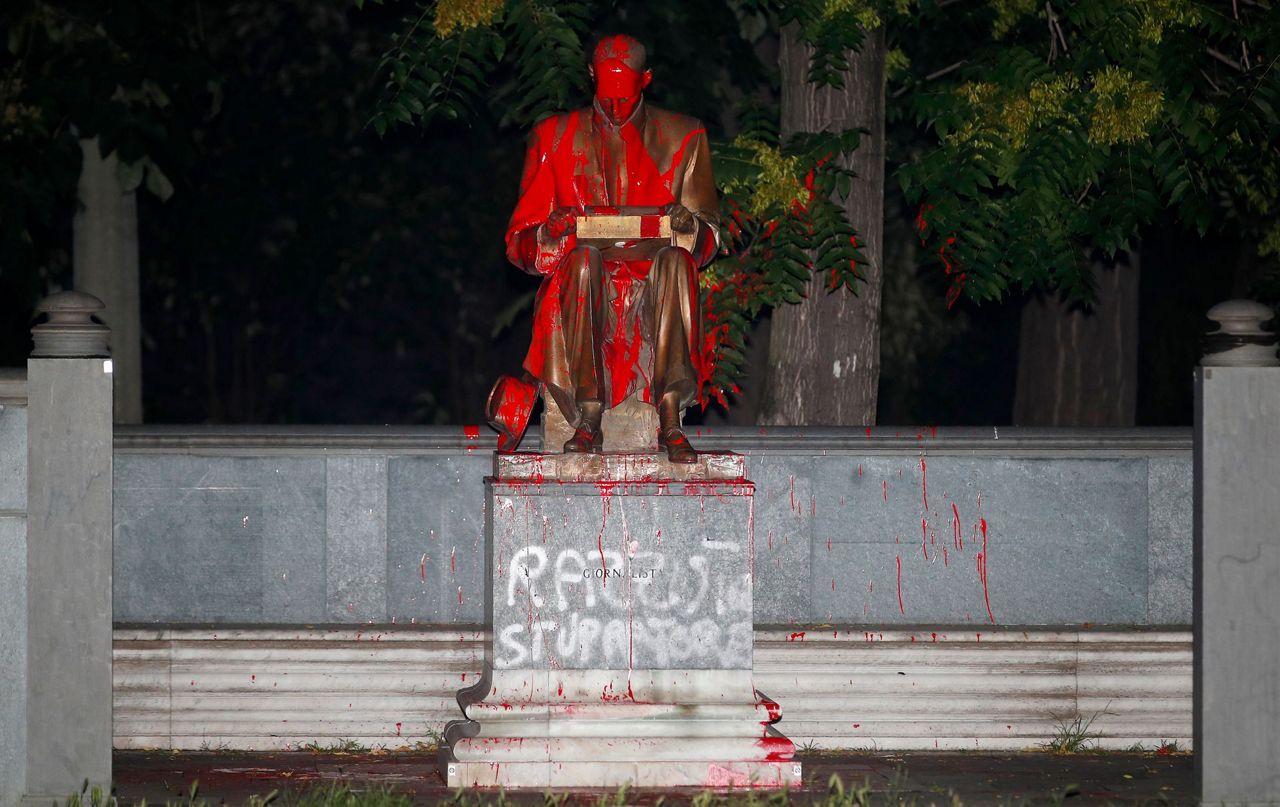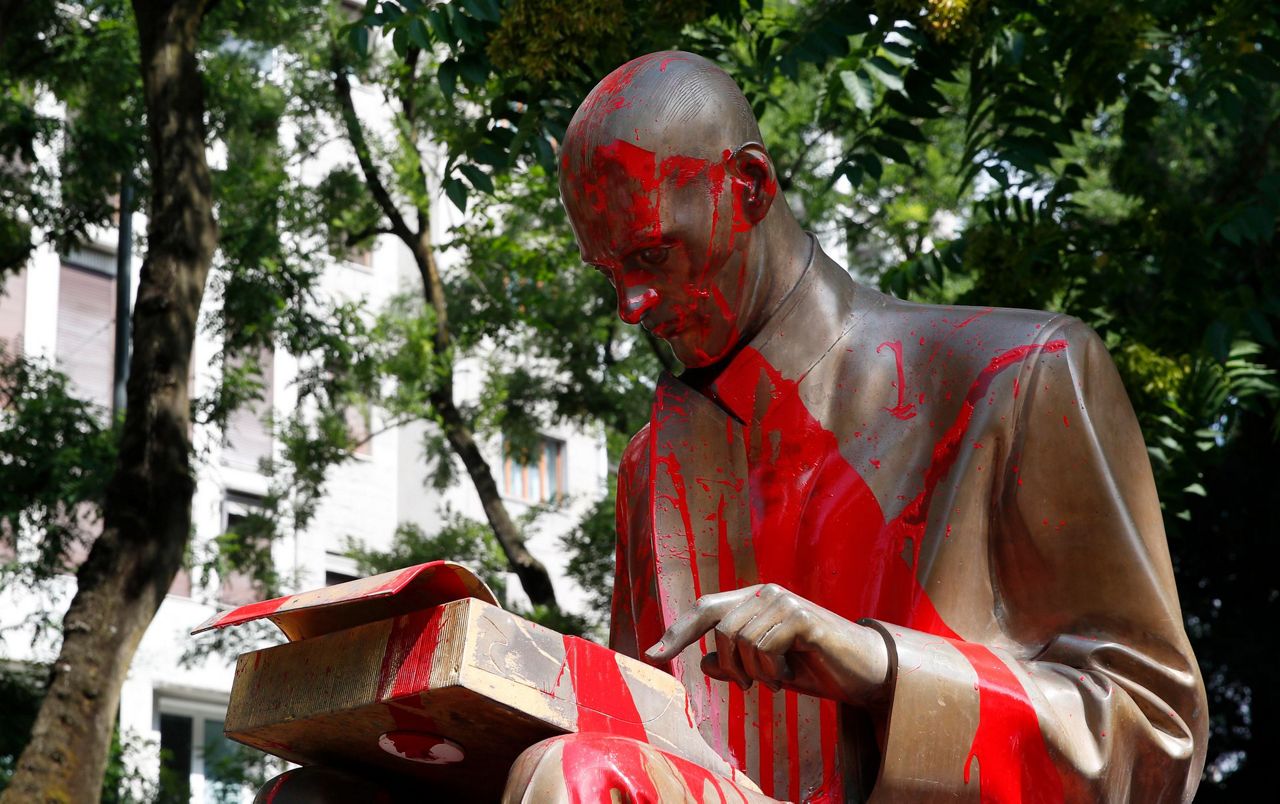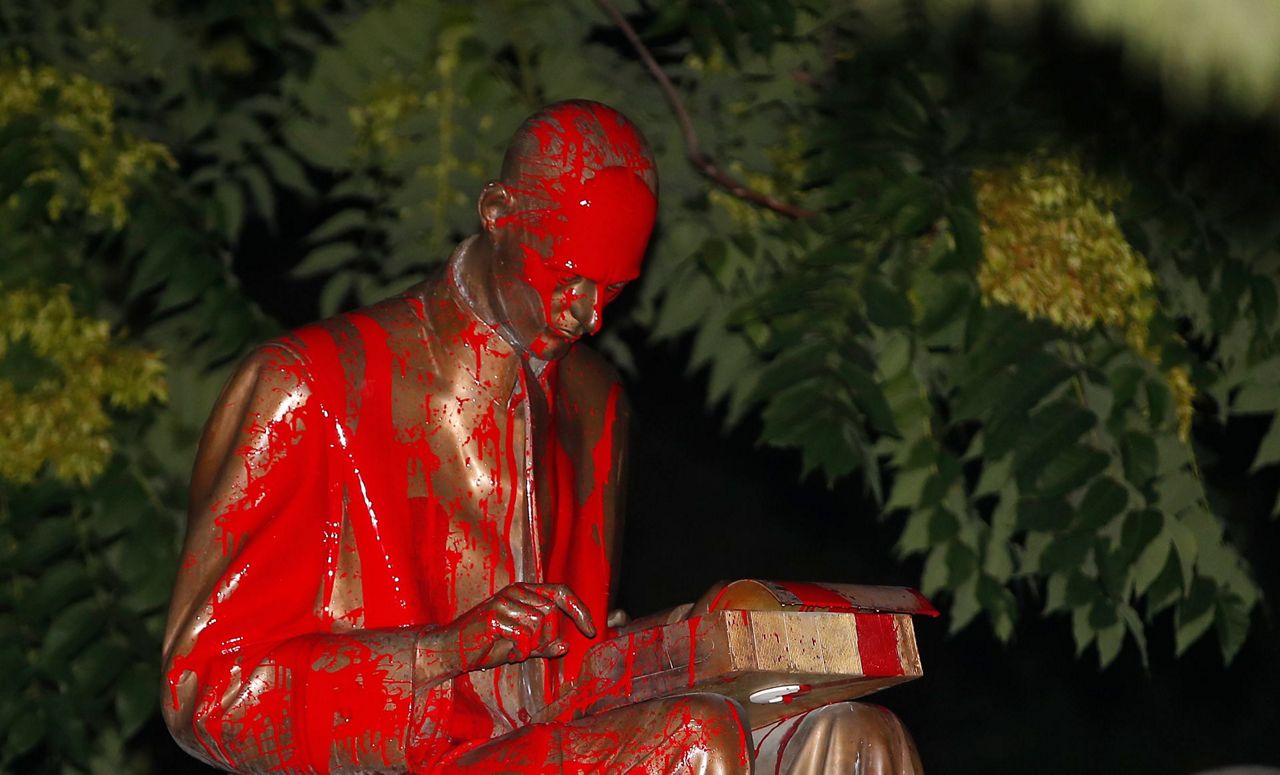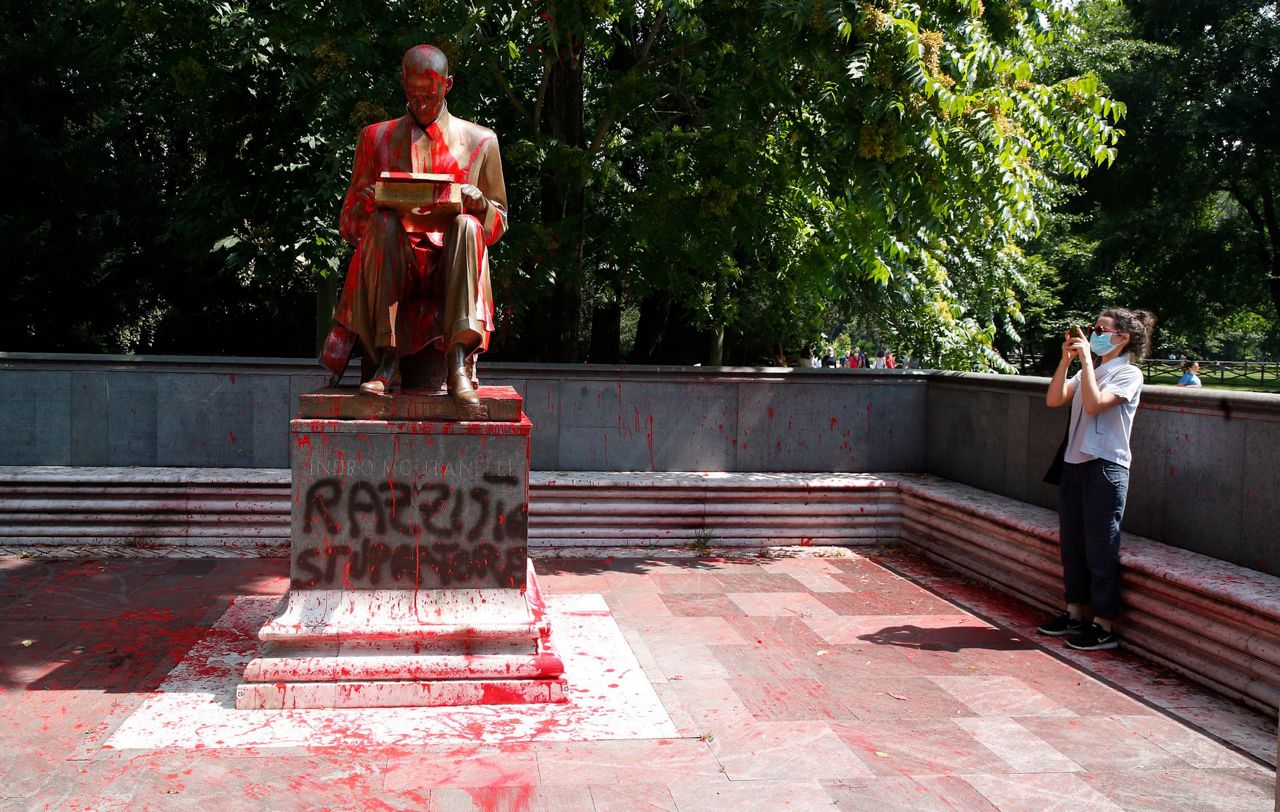MILAN (AP) — The colonial past of a highly revered Italian journalist has become a flashpoint in Italy's Black Lives Matters protests, as detractors defaced a statue in his honor and seek its removal from a city park near where he was once attacked by the far-left Red Brigades.
Milan Mayor Giuseppe Sala on Sunday resisted calls to remove the statue of the late Indro Montanelli, who had acknowledged having had a 12-year-old Eritrean bride during Italy’s colonial occupation in the 1930s.
Sala said in a Facebook video that he was perplexed by “the lightness” with which Montanelli had confessed to having bought the child bride from her father, in a widely circulated video of a 1969 talk show appearance. But he said “lives should be judged in their totality.”
“Montanelli was more than that. He was a great journalist, a journalist who fought for the liberty of the state, an independent journalist. Maybe for these reasons he was shot in the legs,” Sala said, referring to the 1977 attack on Montanelli by two members of the Red Brigades terror organization near the park that now bears his name. “For these reasons, I think the statue should remain.”
Black Lives Matters protests has put a renewed focus on Italy's colonial past, with calls to remove the Montanelli statue and rename the park. Activists also are pushing for automatic citizenship to foreigners born in Italy to parents with permanent residency and to do away with laws that limit immigration.
Over the weekend, protesters covered the statue with red paint and scrawled “racist” and “rapist” on the base. The statue has been covered previously in pink paint in feminist protests, but this is the first time that Montanelli’s past has faced a serious reckoning.
On Sunday, city workers and volunteers removed the graffiti and paint and covered the statue with plastic. Italian special operations police were investigating who was responsible, the LaPresse news agency reported.
Later, a group calling itself the Milan Student Network claimed responsibility in a video showing two people wearing hoods and gloves defacing the statue.
Montanelli, who died in 2001 at age 92, was one of Italy’s most revered journalists, honored by the Vienna-based International Press Institute in 2000 as among the 50 World Press Freedom Heroes.
A noted foreign and war correspondent, Montanelli chronicled contemporary Italy from its colonial era through fascism, Italy’s postwar reconstruction and the anti-corruption scandals that overturned Italy’s political class in the 1990s.
He worked for many years at Corriere della Sera, before becoming founding editor of Silvio Berlusconi’s il Giornale. He famously quit the paper when the media mogul became a politician. He mentored some of today’s top Italian journalists.
But his legacy is being challenged by his having taken a child bride when he 24 years old and leading a battalion of 100 Eritreans during the Fascist regime’s colonial rule.
One of his protégé’s, Beppe Severgnini, wrote in Corriere della Sera this week that “while toppling a statue of a dictator can be a gesture of liberation, removing the statue of a free journalist stinks of fanaticism.”
Montanelli himself, on several public occasions, freely acknowledged the relationship with the girl named Desta.
“I think I chose well. She was a beautiful girl of 12 years,” Montanelli told the 1969 talk show appearance, adding a smiling “excuse me. But in Africa it was another thing.”
The Eritrean-born journalist, Elvira Banotti, who was in the audience, challenged his romantic account, accusing him of rape and of “violent” colonialist behavior. He defended himself, saying there was no rape because girls in Eritrea married at the age of 12, but acknowledged that it would have been considered rape in Europe. “What difference is there physically, or psychologically?” Banotti pressed.
Montanelli, writing in Corriere della Sera in 2000 in response to a letter from a reader, put the girl's age at 14 and said she married an Eritrean after he left, and named her first of three children Indro. He traveled to Eritrea in 1952, and she “received me like a father,” he wrote.
“I hope I haven't scandalized you,” he wrote, in conclusion, to the 18-year-old who solicited the account. “If I have, it's your fault.”
Copyright 2020 The Associated Press. All rights reserved. This material may not be published, broadcast, rewritten or redistributed without permission.







